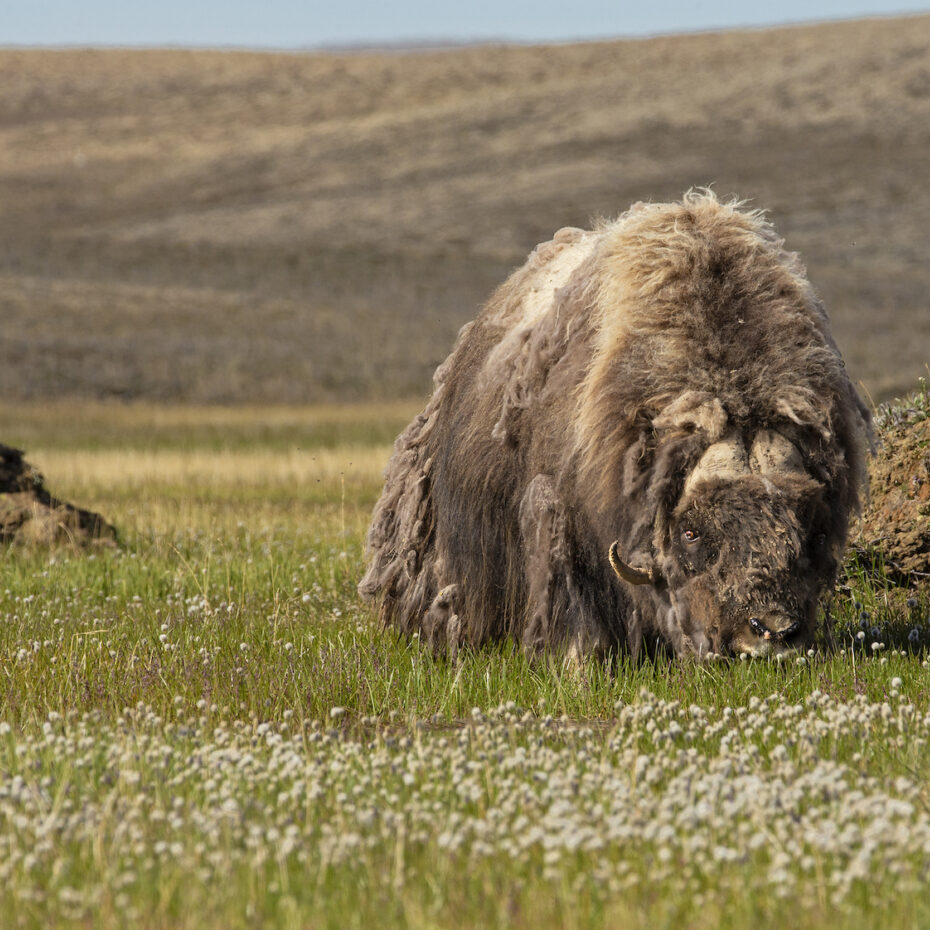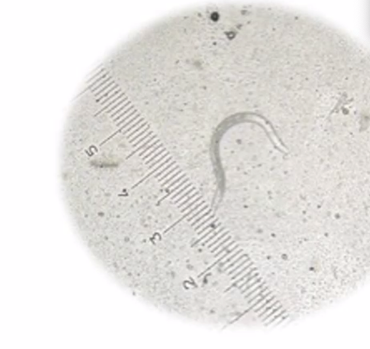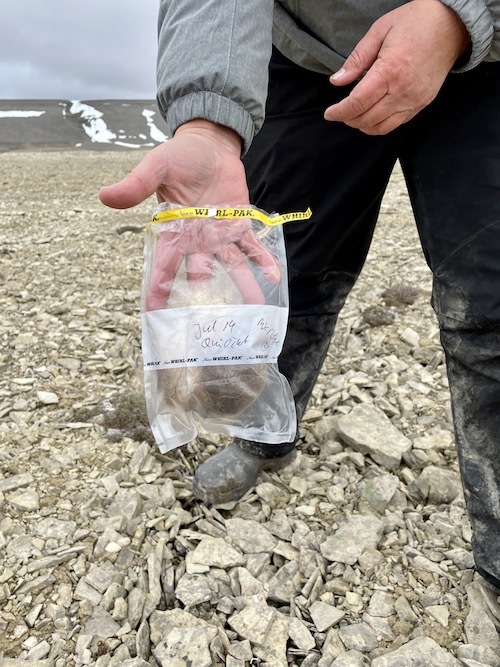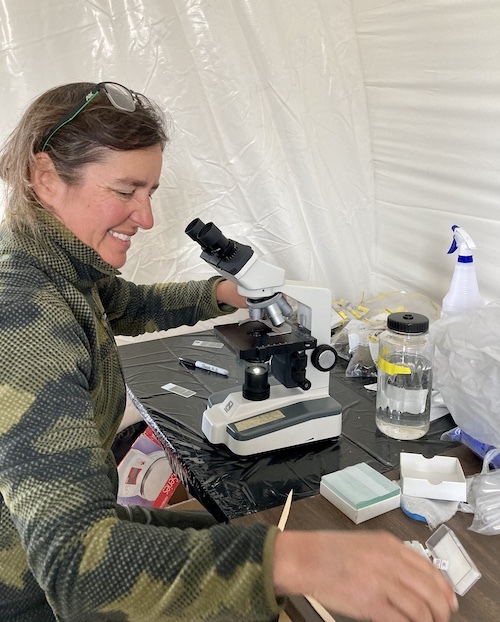2022 MUSKOX RESEARCH ON SOMERSET
Featured

Featured
April 01, 2022 | Arctic Watch
Last year's pilot project on Somerset found some pretty interesting results.
Dr Susan Kutz and her colleague Dr Karin Orsel are muskoxen researchers. In summer of 2021, we invited them to study the muskoxen that inhabit the tundra near Arctic Watch. Read the details here.
The future of the muskoxen is at risk under the current scenario of rapid Arctic climate change which is occurring at three times the rate of elsewhere in the world. Research by the Kutz Research Group on muskox health since 2008 has detected several emerging pathogens of high concern for muskoxen, several of which also can infect people (zoonotic). These include the bacteria Erysipelothrix rhusiopathiae and Brucella suis biovar 4, and orf virus. Erysipelothrix has caused large scale die-offs of more than 50% within populations on Banks and Victoria Islands in the western Arctic archipelago and more recently on Ellesmere Island. Brucellosis reduces pregnancy rates and survival. Orf or sore mouth, causes severe scabbing around the mouth, nose and feet and reduces survival. In addition, many of these populations are deficient in several essential trace minerals. Together, these emerging diseases and nutritional deficiencies mean that populations that once thrived are now doing poorly.
The pilot study at Arctic Watch, identified some significant factors: trace mineral deficiencies (specifically extremely low selenium - critical to reproduction) and evidence of parasitism (lung worms found via muskox fecal samples).
Trace minerals are important in all mammals - they mean healthy organ function, reproduction, increased ability to combat illness and more.

We are pleased to be inviting back Dr. Kutz and her colleague Dr Orsel to continue collecting baseline data of the muskoxen on Somerset to further confirm their findings:
2022-23: Finish establishing baselines of individual health, including trace mineral and parasite status, population health metrics (population size, demographics, calving and recruitment), diet analyses, and preliminary testing of forage plants.
The goals to understand:
- Why are muskoxen low in some key trace elements and what are the environmental factors (weather and plant diversity, phenology) driving these deficiencies? How do these deficiencies affect their survival and reproduction?
- What are the impacts of lungworms on muskoxen and how are these affected by ongoing and accelerating climate change?
- How is the insect diversity changing and is this a risk for muskoxen?
Three core research programs we aim to support within Susan's work on Somerset:
1) Understanding the causes and consequences of trace mineral deficiencies. This is done by collecting samples of muskox qiviut to monitor mineral status and studies on the forage plants to determine the main plant sources of trace minerals. Field studies including gathering qiviut, establishing long term plant sampling sites and climate warming chambers (ITEX), ongoing monitoring of local muskox population and experimental supplementation.

2) The effects and future of parasites in muskoxen. This study will focus on lungworms, Dictyocaulus. These parasites have been described as a cause of mortality for yearling muskoxen yet extremely little is known about their biology. This will include ongoing sampling and investigation of muskoxen droppings throughout the summer for parasites and establishing stress levels. Establishment of study plots to monitor the growth and survival of lungworm larvae in the environment over time. Parasites threaten the survival of muskoxen.

3) Understanding the impacts of changing insect diversity. Here we will establish the current insect diversity and identify the potential risks of this changing fauna for muskoxen.
The Arctic Watch Beluga Foundation's goal by supporting this work is to use the data to implement mitigative measures to help support the future long term survival of the Somerset muskox population and then help the Nunavut & NWT Departments of Environment take mitigative steps to preserve of muskoxen in the Canadian Arctic.
If you are interested in helping us to support this project via our charity, please contact us.
We understand that booking a trip like this is a big endeavour. Please reach out to us with any questions that you might have regarding your upcoming adventure.